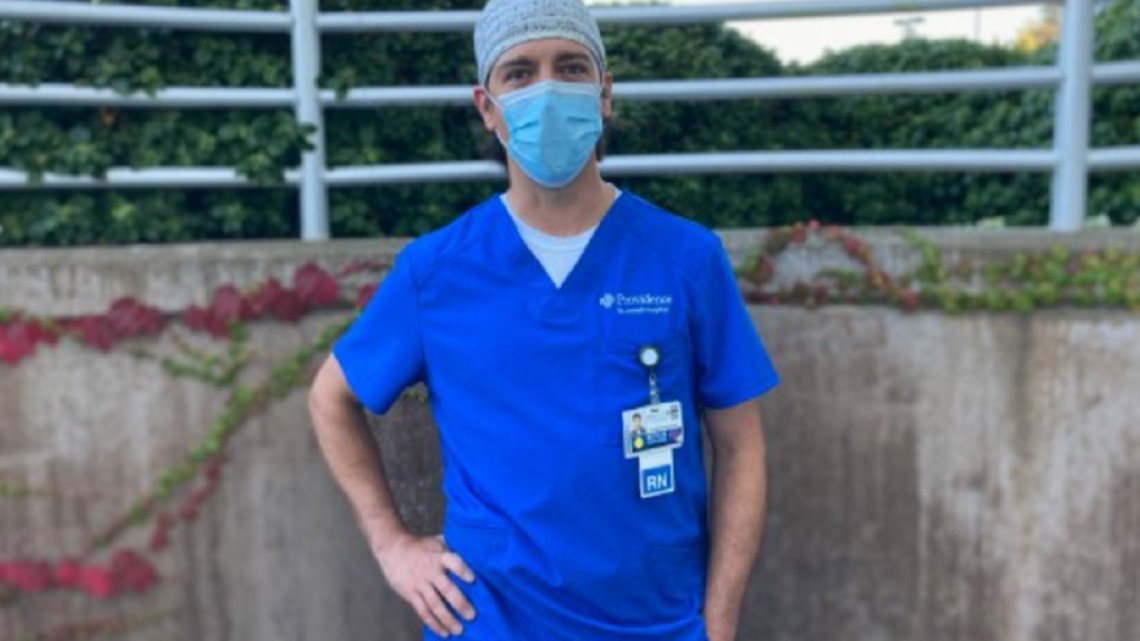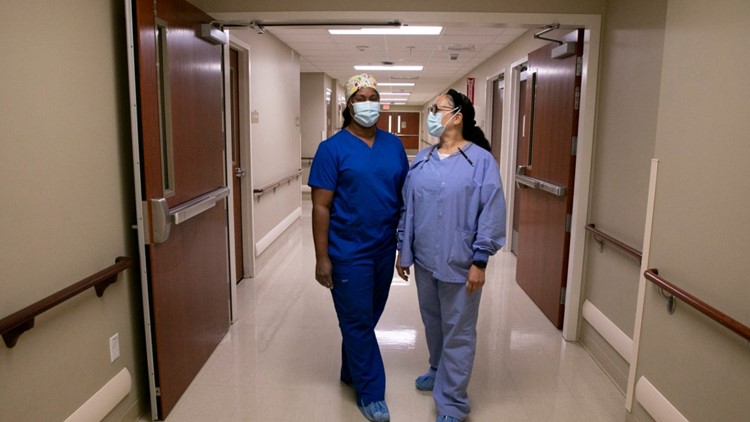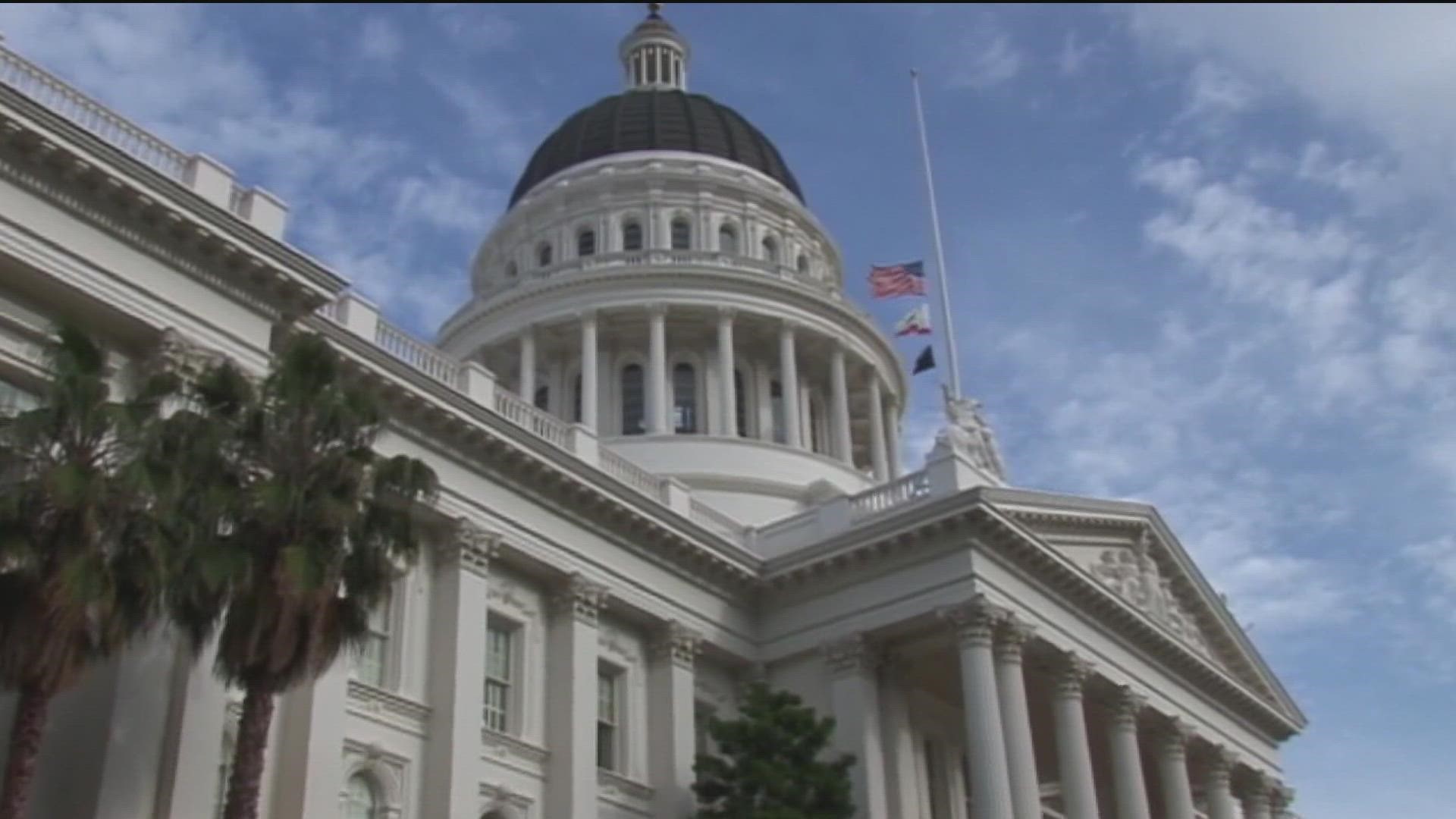CALIFORNIA, USA — This story was originally published by CalMatters.
In the past month, four emergency room nurses — exhausted by the onslaught of patients and emotional turmoil wrought by COVID-19 — have quit at the Eureka hospital where Matt Miele works.
Miele, who has been a trauma nurse for four years, is actively looking for a less stressful nursing position and has colleagues who are, too.
“On the bad days, I think ‘What am I doing and is this what I want to be doing?’” Miele said. “It’s shifting me to my core.”
Around California — and the nation — nurses are trading in high-pressure jobs for a career change, early retirement or less demanding assignments, leading to staffing shortages in many hospitals.
Hospitals are struggling to comply with the state’s nurse staffing requirements as pandemic-induced burnout has exacerbated an already chronic nursing shortage nationwide.


But burnout isn’t the only thing compounding California’s nursing shortage: The state’s new vaccine mandate for health care workers is already causing headaches for understaffed hospitals before it is even implemented. Some traveling nurses — who are in high demand nationwide — are turning down California assignments because they don’t want to get vaccinated.
Hospitals say they are reaching a crisis point, straining under the dual forces of more people seeking routine care and surging COVID-19 hospitalizations driven by the Delta variant.
“Oftentimes at hospitals there are long waits and long delays,” said Dr. Tom Sugarman, an emergency physician in the East Bay and senior director of government affairs at Vituity, a physicians’ group. “There’s not enough staff to keep beds open, and patients can languish waiting.”
In March 2020, the California Department of Public Health contracted with Aya Health — one of the nation’s largest traveling nurse providers — to pay up to $1 billion over six months to help hospitals meet nursing and other clinical staff shortages.
Department officials did not respond to multiple requests about the number of hospitals now seeking emergency staffing, and would not release the updated contract.
Last week, Gov. Gavin Newsom signed an executive order reinstating emergency provisions aimed at ensuring adequate staffing. In part, the order allows health care workers from out of state to work in California.
Unprecedented staff shortages
Before the pandemic, nursing shortages were common in most areas of the state, according to the Office of Statewide Health Planning and Development.
Now the pandemic has stretched resources to a breaking point.
Hospitals, some with more COVID-19 patients now than during the winter surge, say they are confronting unprecedented staffing shortages, particularly among nurses.
“All of our hospitals are saying staffing is a big problem,” said Lois Richardson, attorney for the California Hospital Association. “We have fewer personnel than at the beginning of the pandemic and more patients.”
The staffing shortage is so severe that Scripps Health is considering temporarily consolidating some of its outpatient centers. Scripps, which has five hospitals and 28 outpatient clinics in the San Diego area, told CalMatters that it is serving nearly 20% more patients on average than before the pandemic. At the same time, job openings at the hospitals have increased 57% since August 2019. For nursing jobs alone, vacancies have increased 96%.
“We’ve had some staff leave the organization or leave the industry as a whole because they’re burned out,” said Eric Cole, corporate senior vice president of human resources for Scripps. “They’ll wake up in the morning and call off the shift. They’ve done as much as they can do.”
Emotional and physical exhaustion is the primary reason nurses are fleeing the bedside, experts say. It has been a long and brutal 18 months.
“We thought the pandemic would be over soon and could take time later to deal with our emotions,” said Zenei Triunfo-Cortez, president of National Nurses United, the largest nursing union in the country, which has more than 100,000 members in its California association. “Then the second surge hit, and the third and now it’s the fourth.”
Mary Lynn Briggs, an ICU nurse in Bakersfield, said of the dozens of COVID-19 patients she has treated since the pandemic began, only three have survived.



